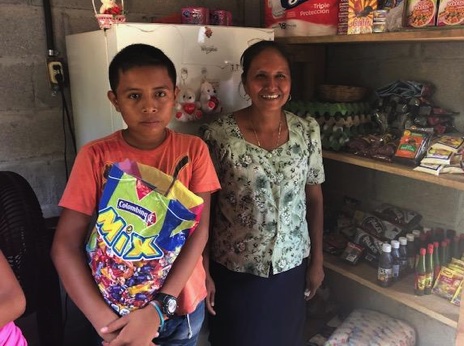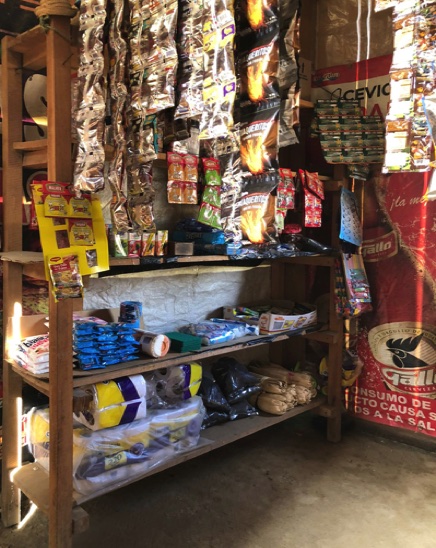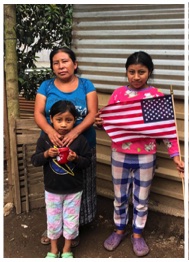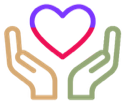
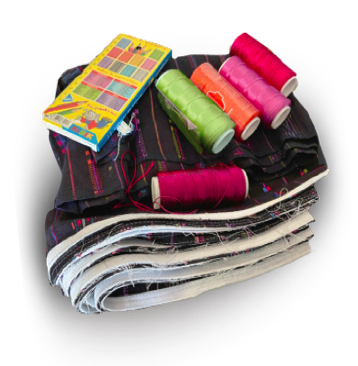
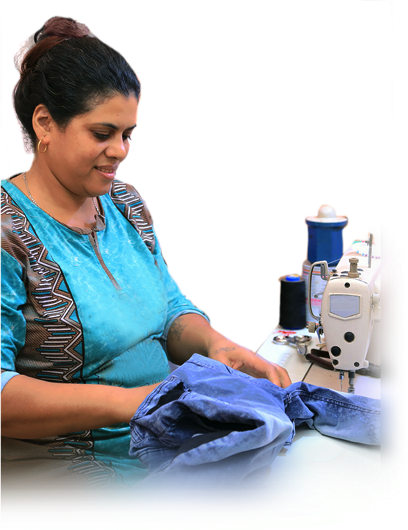
"In the hands of the poor, microfinance becomes a catalyst for change,
fueling dreams and unlocking potential."
- Mary Ellen Iskenderian.
BACKGROUND
Microloans have emerged as an innovative and impactful approach to addressing the financial exclusion of
marginalized individuals and communities. By providing access to capital, these loans empower individuals to
improve their livelihoods, stimulate local economies, and contribute to sustainable development. Microfinance
bridges the gap by offering small loans to individuals who typically are denied access to capital.
Today, most banks will only extend loans to someone with credit or collateral because the risk of default is high.
Yet those in poverty need more credit and collateral may lack employment history, have unstable credit, and lack financial security. Just filling out the application is challenging since many applicants are illiterate.
Financing significantly impacts building an equitable and sustainable environment. Microfinance even has the
potential to alleviate global poverty. It is a hand-up, not a handout. Even on a small scale, financing significantly
impacts building an equitable and sustainable environment.
___________________________________________
To start a business with $40 in the US is not possible. Yet, in developing countries, $40 can be
enough to set up a business and change lives. A small loan has a BIG impact.
Most significantly, 97.9 percent of all loans are repaid. There is almost no default on loans.
___________________________________________
PHOTO GALLERY
________________________________________________________________________
Offered are various microloan products tailored to the needs
and capacities of the borrower. These loans have flexible terms, low
interest rates, and simplified application processes, ensuring accessibility to those with
limited resources, literacy, and financial knowledge. The most requested financin
is for livestock and kiosks.
Integrated into the Finding
Freedom Through Friendship microfinance program is a robust monitoring and support system to ensure the success and
sustainability of the business.
Integrated into the program is comprehensive financial literacy and business training. The training equips the borrower with
economic management, entrepreneurship, and market
knowledge, enabling them to make informed decisions
and maximize the impact of their businesses.
MISSION
The Microfinance Program offers small loans (capital) below market rates to marginalized women
men, youth, and minority groups to finance sustainable businesses and improve their socioeconomic situation.
These loans have a transformative impact on individuals facing significant barriers in accessing
traditional financial services to start or expand their businesses.
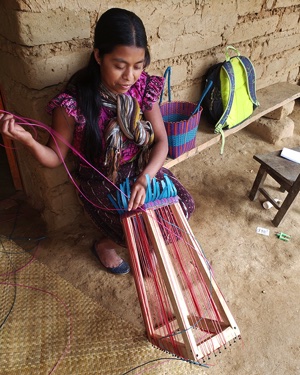
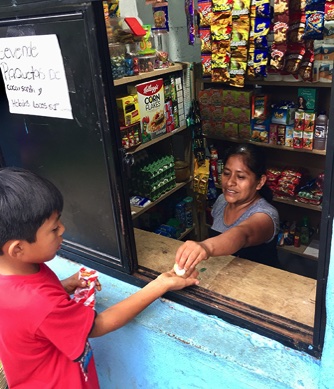
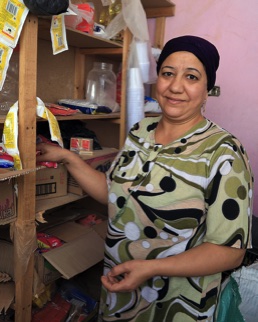
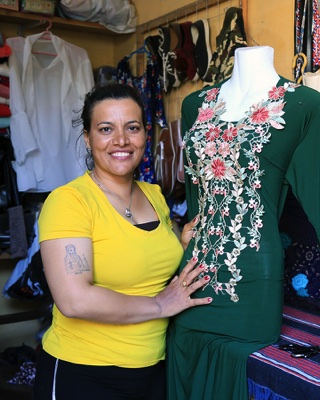
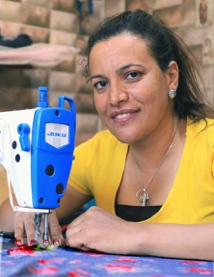
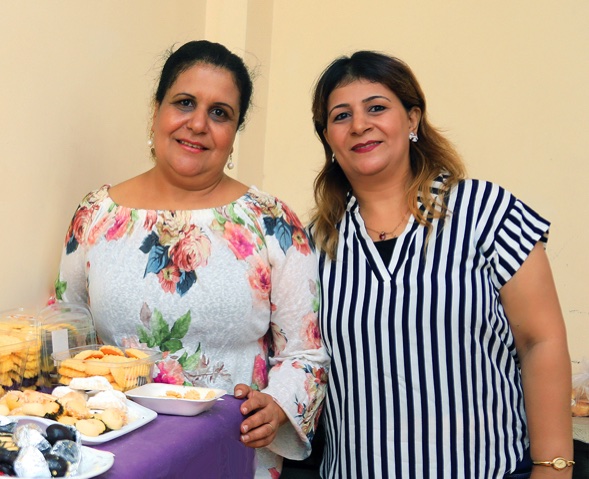
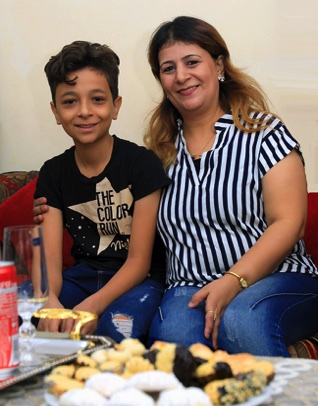
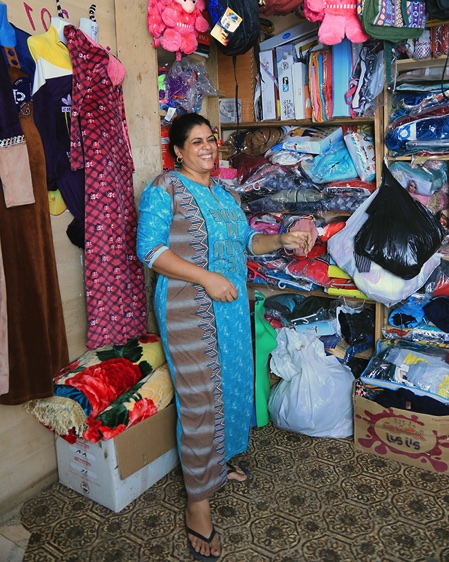
Microloans do have
a transformative
impact on individuals!
Empower.
Transform.
Sustain.
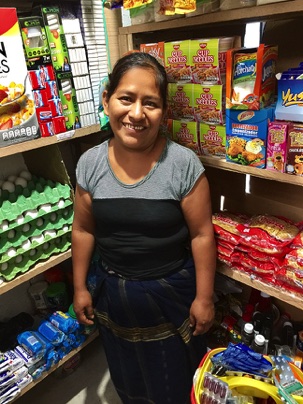
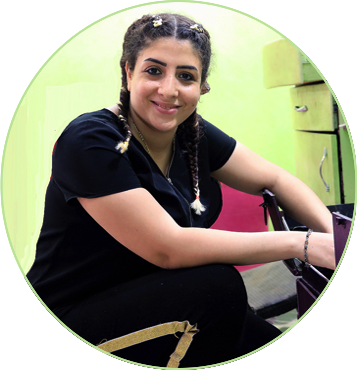
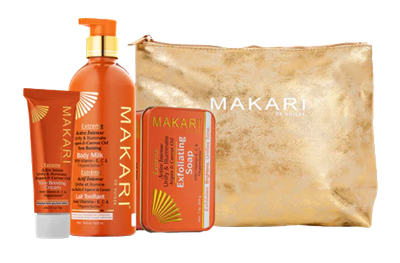
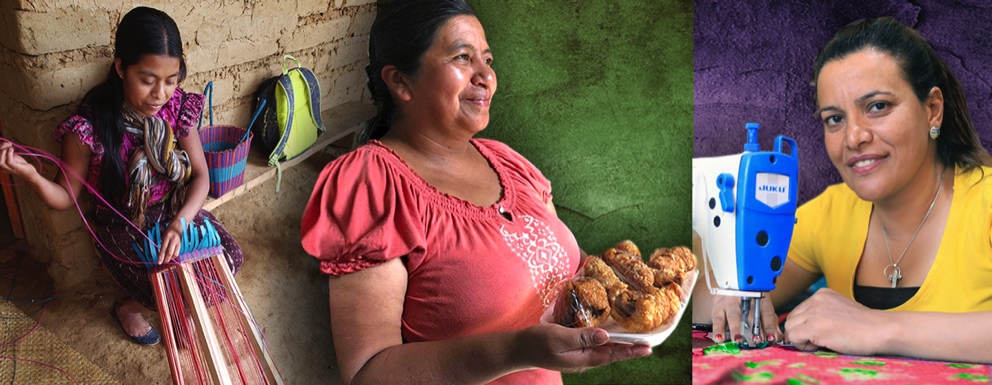
MICR0FINANCE
PROGRAM
Regular assessments, mentorship, and peer-group networks exist to promote responsible borrowing, timely repayments, and knowledge sharing among participants.
SUCCESS STORIES
________________________________________________________________________

(EGYPT)
Mobile Store (shop on wheels)
Meet Mariam Adel
Since they married, Mariam (25) and her husband, Bushra (32), have shared a three-story rental house with Bushra’s brother’s family and Bushra’s parents.
Each family occupies one story, measuring 80 square meters (860 square feet). Mariam, Bushra, and their two children, Mary (4) and Youssef (2) have access to two rooms, a kitchen, and a bathroom. Their living conditions are crowded with two sofas, a bed, a propane camping stove, and a fridge. With a rent of 170 pounds ($7), their total expenses are about 7000 pounds per month ($280). Bushra is a laborer in agriculture, which pays about 2800 pounds per month ($112). The income does not cover their monthly expenses; they rely on family, the church, and the community for additional support.
In rural villages, it is customary for wives to relocate to their husbands' family households after marriage. While the practice reinforces the importance of unity with the extended family, it involves a complex interplay of emotions and dynamics that can lead to strains and challenges.
Medical Expenses
When Youssef, their son, was diagnosed with a blocked tear duct, he underwent surgery, which cost 10,000 pounds ($400). The additional costs worsened the strain on their already dire financial situation.
Retail Store on Wheels
Desiring to lighten the burden on Bushra, Mariam contemplated the business of buying and selling clothes.
They boldly applied for a loan of 20,000 pounds ($800) from the Council for Services and Development (CSD). The most significant expense was purchasing clothes, which, at worst, could be sold at cost. Compatibility, enthusiasm, and the ability to work together as a couple contributed to their project’s feasibility. After careful consideration, CSD approved the loan due to the low level of risk.
The couple bought clothes from a wholesaler by placing a deposit, and after selling the items, they settled the balance.
Mariam's cleverness took the form of a mobile retail outlet! Mariam ingeniously combined product display and storage by utilizing a covered wheeled trailer. Her approach involves using a tricycle to navigate different neighborhoods, effectively promoting and vending her goods. Undoubtedly, it is a brilliant and innovative concept. '
Working together as a team, the couple soon had customers in their village and neighboring towns. With her amiable personality, Mariam successfully sells to women in her neighborhood. She stores inventory in her apartment. She decides which garments to purchase and mainly trades in abayas, galabias, men’s and women’s trousers, and children’s clothing. Customers either pay cash or in installments, in which a deposit of 25% is collected. Bushra makes deliveries on his tricycle. He also plays a significant role in purchases from merchants and collecting customer installments. Their profit margin is 30%. Their average monthly income is around 6000 pounds, barely covering their living expenses. Yet, they have never missed a payment to CSD. They are gradually building a savings account to obtain land for their house. Hopefully, living apart from the family will be beneficial in improving the strained relationship with parents and in-laws.
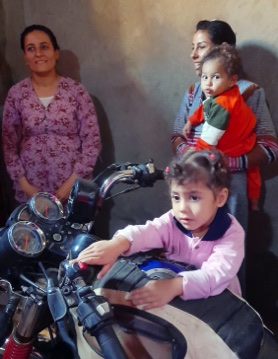
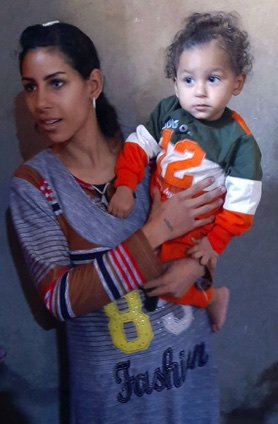
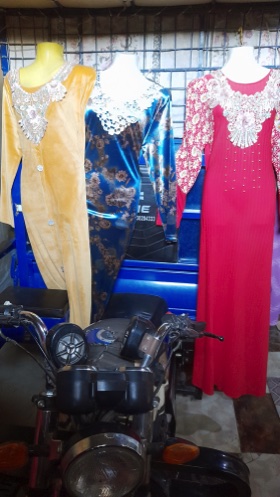
Reflections – Ingenuity and Teamwork
Mariam's ingenuity sprouted from a compelling need to improve her economic prospects. Faced with the desire to enhance her financial situation, she embarked on a journey of innovative thinking that ultimately shaped her destiny. Her brainchild, the mobile retail store on wheels, exemplifies how necessity can spark the most ingenious solutions. Realizing the potential of a covered trailer mounted on wheels, Mariam harnessed this idea to display and store her merchandise effectively. She ingeniously turned her creation into a captivating advertising platform by coupling it with a tricycle for traversing neighborhoods. This strategic fusion of mobility and marketing addressed her economic aspirations and demonstrated her resourcefulness in facing financial challenges.
A significant factor was that Mariam and her husband shared the same vision and worked as a team to launch the entrepreneurial business. Unified by a common purpose and aligned aspirations, their combined efforts gained clarity and direction that drove their decisions and actions. Their teamwork drew upon each other's strengths and expertise to effectively overcome obstacles and adapt to unexpected circumstances. Their shared vision formed the cornerstone of their microbusiness, infusing it with a unique blend of passion, determination, and cohesiveness that set the stage for success.

(EGYPT)
Amal Samir's Story
Amal Samir, her husband Louise Abd El Nour, and their seven children live in an 85 square meter, 3 bedroom house in Bani Hammad, (upper Egypt). In addition to caring for seven children, Amal (45) worked at a Church nursery for a few pounds a week.
The Family’s Desperation
The family made a meager income raising livestock, and breeding baby chicks for for a small profit. They shared their home space with livestock and poultry enduring the smell, noise, and lack of privacy!
Sadly, most of the chickens died from infection. With a profound sense of failure and hopelessness, they sold the remaining poultry to make ends meet, making them unable to provide for their needs.
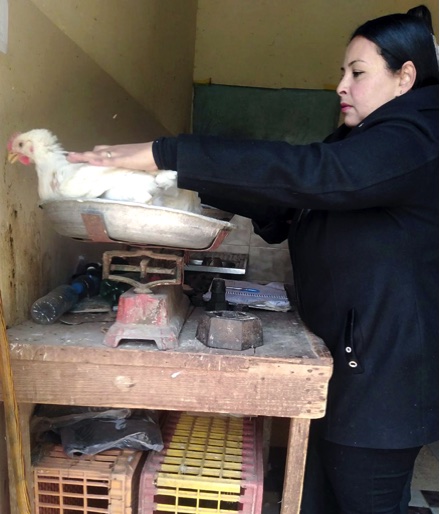
A light of Hope
Finding Freedom through Friendship (FFF) and the Council for Services and Development (CSD) offer small microloans.
A proposal was offered for a microbusiness to sell fresh ready-to-cook chickens, instead of breeding poultry over several months. It worked!
With a small loan of 10,000 pounds ($323), Amal bought chickens, a deep freezer, two scales, steel shelves, plastic boxes, a cooker, and an electrical plucking machine. The children help with the preparations, and the two older daughters help with sales, especially when Amal is busy.
Today
With perseverance, diligence, and hard work, they are one of the most prominent poultry dealers in the village. They buy and sell about 50 chickens per week. The average weekly profit is 500 pounds ($16). Financial burden was lifted and hope was restored. Mrs. Amal intends to get another loan for expansion. She is adamant that she could not have obtained the results without her family. Not only has their financial situation improved drastically, but the relationship between the entire family is more robust, and has positively impacted them as well as their community.
_________________ WHY WE OFFER MICROFINANCE _________________
In a world where the slightest advantage can make a difference
microfinancing stimulates individuals to launch businesses to gain economic stability.
Our Microfinance Program offers women, men, and youth loans below market rates to receive capital to finance a
sustainable business and improve their socioeconomic situation. Yet those in poverty need more credit and collateral, lack employment history, unstable credit, and lack financial security. In a world where the slightest advantage can make a difference, microfinancing stimulates individuals to launch businesses to gain economic stability.
Typically, the capital helps to purchase equipment and supplies.
Microfinance is a hand-up - not a handout.
Even on a small scale, financing has proven to have a significant impact.
In the US, starting a business with $40 is not possible. Yet, in a developing country, $40 can be enough to
set up a business and change lives. Most significantly, 97.9 percent of all loans are paid back.
(EGYPT)
Torts & Decorations Course
by Chef Nermeen
Nermeen Nathan Anis Khalil, a 35-year-old mother, lives in Malawi, a town in upper Egypt. Nermeen is married and has a 7-year-old daughter, Mariam, and a 5-year-old son, Youssef.
Chef Nermeen has always had a passion for baking and decorating cakes. Her family sacrificed financially to allow her to take courses by renowned chefs. Nermeen trained in French pastry with Chef Ahmed Shawky of the Egyptian Pastry Academy and Chef Ahmed Monginis pastries. She studied cookie making, sugar paste, and tier cakes with the famous Chef Marwa Sair and Chef Shaimaa Mohamed. Nermeen completed a comprehensive cooking course with renowned Chef Zainab al Sharwaqi. Chef Nermeen is continually advancing her deep passion for culinary art.
Karma Women’s Development Center (KWDC) was launched on September 17, 2018, in El Minya, Egypt,
by Finding Freedom through Friendship (FFF) with the collaboration
of the Council of Services & Development (CSD).
The center’s mission is to empower women to acquire skills to improve their socioeconomic situation, endorse social equality, promote sustainability, and build leadership. Trainers are evaluated on skills, experience, communication, and interpersonal capabilities. Participants must also assess the teachers, the facilities, and the topic for continuous process improvement.
The first “Baking Torts Basics” course was four days long, and eight students participated. It was a huge success, and all the students proudly displayed their delicious and decorative torts. Chef Nermeen’s evaluations describe her as a patient teacher who delivers clear written and verbal instructions. She uses social media and phone calls to stay in touch with her students during class and even after graduation.
Today, Chef Nermeen is known at the center and in the local community. She teaches several baking classes, from fundamental to advanced levels.
Many of her students are now operating successful tort and pastry microbusinesses. They are thriving and proudly and confidently supporting their families financially. Chef Nermeen has transformed the center and many lives most positively.
Economically empowered women effectively influence their lives, families, and communities for positive social changes.

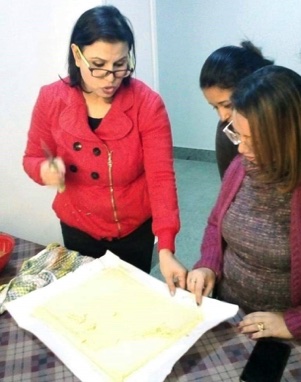
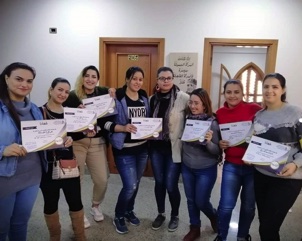
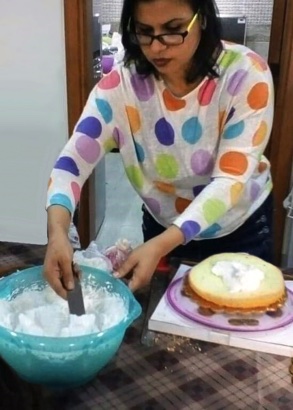
(GUATEMALA)
Micro Business Grants:
Empowering Women-Led
Households
Micro business grants sponsored by Finding Freedom Through Friendship enable women to start their own businesses, which can lead to economic independence. This is particularly important in Guatemala, where patriarchal societies offer few economic opportunities for undereducated women. By investing in small businesses, women can generate a steady income which helps in covering basic needs such as food, healthcare, and education for their families. Along with training and support in financial literacy, business management, and vocational skills, FFF business grants enhances Mayan women’s ability to run successful enterprises. As women become economically active, they can contribute to the local economy and create jobs, benefiting the broader community. Their success can also inspire other women to pursue entrepreneurship.
Poor Mayan women often lack collateral, credit history, and formal employment, which are typically required by traditional banks. Many Mayan women live in poverty and struggle to meet basic needs. Micro businesses provide a pathway out of poverty by enabling them to start or expand income-generating activities.
The increased income from FFF sponsored micro businesses allowed Finding Freedom Through Friendship participants like Eva and Sylvia to invest in their children’s education and healthcare, while providing some disposable income to help with family expenses.
